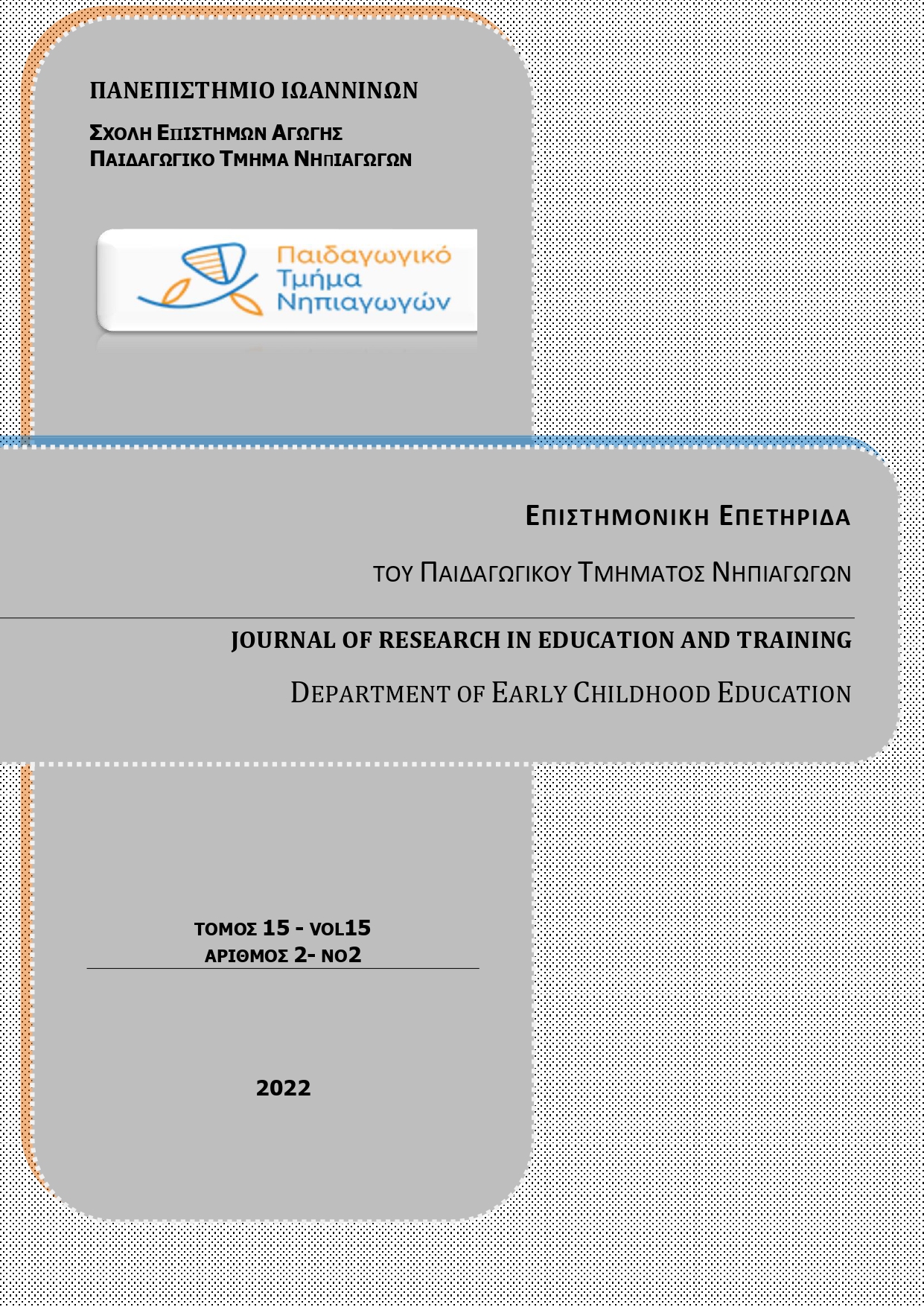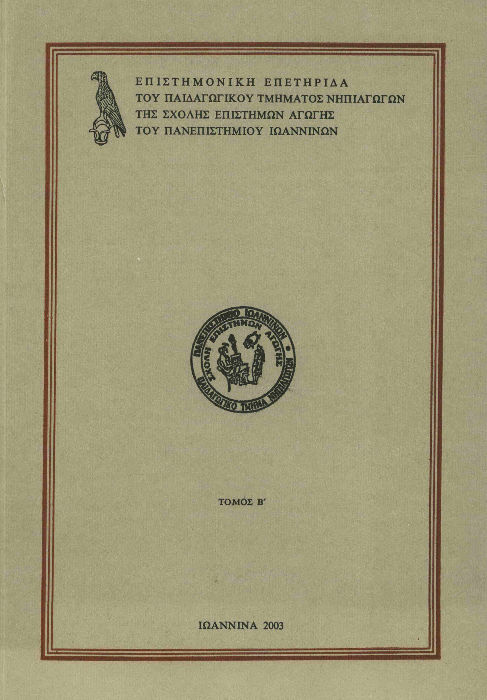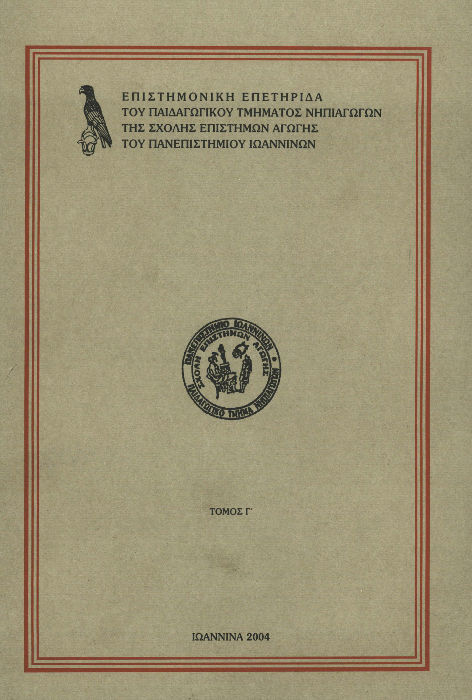Απόψεις εκπαιδευτικών της περιφέρειας Ηπείρου για τη συμβολή του μουσείου στη διδασκαλία των φυσικών επιστημών

Περίληψη
Η εργασία αποτελεί μέρος ευρύτερης έρευνας που αποσκοπεί στη συνέργεια της τυπικής με τη μη τυπική εκπαίδευση στο πλαίσιο της διδασκαλίας των φυσικών επιστημών. Μεθοδολογικό πλαίσιο της έρευνας είναι η επεκτατική μάθηση, ακολουθώντας τις φάσεις του επεκτατικού κύκλου. Η παρούσα εργασία στοχεύει στην ανάλυση της κατάστασης (δεύτερη φάση επεκτατικού κύκλου) που προηγείται του σχεδιασμού επιμορφωτικού σεμιναρίου για τους εκπαιδευτικούς (τρίτη φάση επεκτατικού κύκλου). Αποτελεί εμπειρική έρευνα που ακολουθεί τη μικτή προσέγγιση συλλέγοντας και αναλύοντας τόσο ποσοτικά όσο και ποιοτικά δεδομένα. Πιο συγκεκριμένα, αξιοποιεί ερωτηματολόγιο (n=149) και ημι-δομημένες συνεντεύξεις μιας ομάδας των εκπαιδευτικών (n=9). Τα ερευνητικά ερωτήματα της εργασίας αφορούν 1) τις απόψεις των εν ενεργεία εκπαιδευτικών πρωτοβάθμιας εκπαίδευσης της περιφέρειας Ηπείρου για τη συμβολή των μουσείων γενικού ενδιαφέροντος στη διδασκαλία των φυσικών επιστημών και 2) τις αντιφάσεις που βιώνουν οι εκπαιδευτικοί στο πλαίσιο της υφιστάμενης κατάστασης στη σχέση σχολείου και μουσείου σε μια κοινωνικο-πολιτισμική προοπτική. Παρά τις δυσκολίες που παρουσιάζονται από τους εκπαιδευτικούς και εκδηλώνονται ως αντιφάσεις, οι εμπλεκόμενοι εκπαιδευτικοί αντιλαμβάνονται τη σημασία της μη τυπικής εκπαίδευσης και εκφράζουν την πρόθεση είτε να συμμετάσχουν είτε να σχεδιάσουν οι ίδιοι και να εφαρμόσουν εκπαιδευτικά προγράμματα φυσικών επιστημών σε μουσεία γενικού ενδιαφέροντος.
Λεπτομέρειες άρθρου
- Πώς να δημιουργήσετε Αναφορές
-
Κορνελάκη Α.-Χ., & Πλακίτση Κ. (2022). Απόψεις εκπαιδευτικών της περιφέρειας Ηπείρου για τη συμβολή του μουσείου στη διδασκαλία των φυσικών επιστημών. Επιστημονική Επετηρίδα Παιδαγωγικού Τμήματος Νηπιαγωγών Πανεπιστημίου Ιωαννίνων, 15(2), 48–79. https://doi.org/10.12681/jret.30410
- Τεύχος
- Τόμ. 15 Αρ. 2 (2022):
- Ενότητα
- Άρθρα

Αυτή η εργασία είναι αδειοδοτημένη υπό το CC Αναφορά Δημιουργού – Μη Εμπορική Χρήση – Παρόμοια Διανομή 4.0.
Οι συγγραφείς που δημοσιεύουν σε αυτό το περιοδικό συμφωνούν στους παρακάτω όρους :
1. Οι συγγραφείς διατηρούν τα δικαιώματα πνευματικής ιδιοκτησίας επί των άρθρων τους, χορηγώντας στο περιοδικό το δικαίωμα της πρώτης δημοσίευσης. Άρθρα που δημοσιεύονται στο περιοδικό «Επιστημονική Επετηρίδα του Παιδαγωγικού Τμήματος Νηπιαγωγών της Σχολής Επιστημών Αγωγής του Πανεπιστημίου Ιωαννίνων» διατίθενται με άδεια Creative Commons 4.0, σύμφωνα με την οποία μπορούν να χρησιμοποιούνται ελεύθερα, με αναφορά στο/στη συγγραφέα και στην πρώτη δημοσίευση για μη κερδοσκοπικούς σκοπούς.
2. Οι συγγραφείς μπορούν να συνάπτουν ξεχωριστές, πρόσθετες συμβάσεις και συμφωνίες για την μη αποκλειστική διανομή του δημοσιευμένου στο περιοδικό έργου (π.χ. κατάθεση σε ένα ιδρυματικό αποθετήριο ή δημοσίευση σε ένα βιβλίο), με την αναγνώριση της πρώτης δημοσίευσης σε αυτό περιοδικό.
3. Στους συγγραφείς επιτρέπεται να δημοσιεύσουν την εργασία τους online (κατά προτίμηση σε ιδρυματικά αποθετήρια ή στην ιστοσελίδα τους) πριν και κατά τη διάρκεια της διαδικασίας υποβολής, καθώς αυτό μπορεί να οδηγήσει σε παραγωγικές ανταλλαγές, όπως επίσης και παλαιότερες και ευρύτερες παραπομπές δημοσιευμένων εργασιών (The Effect of Open Access)




